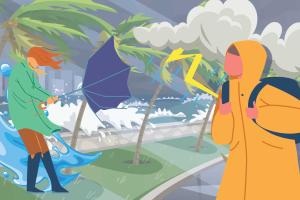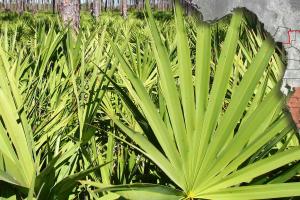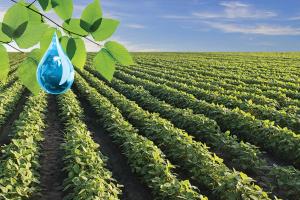Watch the Governing Board Livestream Tuesday at 9 a.m.
Search Content
Displaying results 81 - 100 of 4965
Danger Down BelowRemember that an aquifer is an underground layer of spongelike rock that holds water. Since the water lies hidden underground, most people can only imagine what an aquifer looks like. Here in Florida, highly-trained experts can visit an aquifer!Of course, it’s not that simple. Cave diving requires expensive equipment, plenty of knowledge and special skills. Even then it is very dangerous.Windows into the Aquifer Want a…
The District and the Department of Environmental Protection (Department) recently issued a joint response to concerns expressed by regulated interests regarding implementation of these permitting criteria. This response is summarized below:
- The Southwest Florida Water Management District (District), following the direction of the Department of Environmental Protection (Department), has informed permit applicants that stormwater discharges contributing to…
Overview
Applicants will be asked to break this down in more detail in the application.
Students will work together to test various water quality parameters and conduct a macroinvertebrate sampling at locations along the Hillsborough River. To determine a healthy ecosystem, students will work in groups and use different monitoring tools to collect data on the river’s temperature, pH, dissolved oxygen, turbidity and nutrient levels. Students…
What does Florida Water StarSM mean for me?
- Saves an estimated $530 on annual utility bills
- Reduces water and energy use
- Creates peace of mind due to additional home inspections
- Increases resale through higher quality landscape designs and irrigation systems
OverviewApplicants will be asked to break this down in more detail in the application. Students will explore and understand the basics of water and how it moves above, on and beneath the Earth’s surface. As an introduction to the water cycle, students will make Water Cycle Wristbands and learn about the different processes…
More Tips for Saving Water Outdoors
- Do not leave sprinklers unattended. Use a kitchen timer to remind yourself to turn off sprinklers.
- Water slowly to reduce runoff and to allow deep penetration.
- Observe the watering schedule for your address.
- Dig out water-loving weeds and cultivate soil often.
- Use a rain barrel to…
OverviewApplicants will be asked to break this down in more detail in the application. Students will begin this grant project by developing a deeper understanding of the importance of clean, fresh water for humans and wildlife. Through in-classroom activities, students will learn about the source of our fresh water in west-central Florida and the importance of water conservation. This will include…
A Water Use Caution Area, or WUCA, is an area where regional action is necessary to address cumulative water withdrawals which are causing or may cause adverse impacts to the water and related natural resources or the public interest. The District Governing Board designates WUCAs and establishes rules that enhance the protection and/or…
From June through November, we live nervously here in Florida. Why? Energy and water from the tropics can venture toward the southeastern U.S. in gigantic, spinning storms we call “hurricanes.”
Hurricanes begin when a storm develops over warm surface waters. As warm air rises in the center of the storm, it creates an upward current of air, called an updraft. The surrounding air is attracted to the storm’s center, where it rises and causes the pressure to drop. The…
The Water Use Permit Information Center has been redesigned to provide our users with a more intuitive, user-friendly environment to submit their Water Use Permit (WUP) compliance data.
In addition to data submittals, the online Permit Information Center, known as ePIC, provides quick and easy access to permit information, graphs and reports.
ePIC Highlights:
- Compatible with most tablets and smart phones, allowing for mobile data entry
- The ‘…



